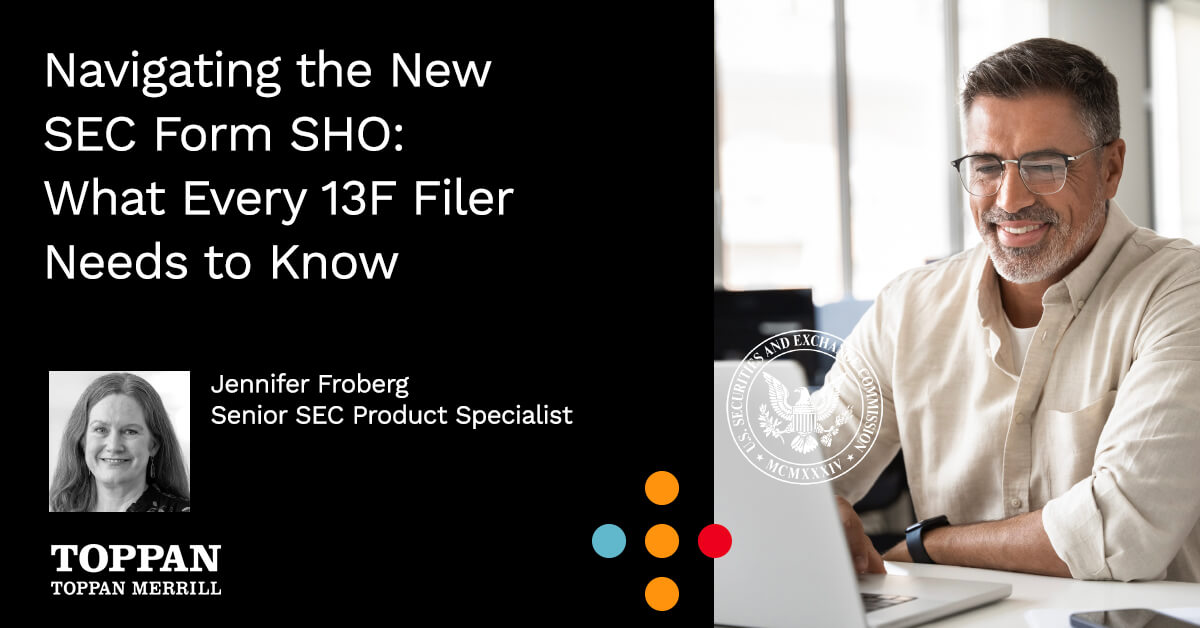Overview: Resource Extraction filings on Form SD
After many delays, reporting under the SEC’s Resource Extraction final rule is finally here. Resource extraction companies, in the oil, natural gas, and minerals sectors, will need to report payments, such as taxes or fees, that they make in their commercial development for resources. This payment data is required to be reported on Form SD in standard/traditional XBRL format, beginning in September 2024 for most filers.
The SEC was directed to adopt Resource Extraction reporting under the Dodd-Frank Act. In 2016, the SEC adopted the first final rule. However, that rule was overturned in a lawsuit and then by Congress. The SEC reissued a final rule in 2020, with a two-year phase-in period for filers that is ending soon.
Internationally, other jurisdictions, including the EU and Canada, have adopted similar requirements for extraction companies to report their payment data.
The SEC’s Form SD (Specialized Disclosure) can be confusing for filers since it serves two distinct and separate reporting requirements with different filing deadlines:
- Conflict Minerals report: (Rule 13p-1)
- Resource Extraction report: (Rule 13q-1)
Conflict Minerals reports on Form SD are due annually by May 31 and require issuers to report in HTML format their use of gold, tin, tantalum and tungsten; the requirements and due date for Resource Extraction reports are detailed below.
Who is required to file?
The final rule applies to both applicable domestic and foreign private issuers. Filers are required to disclose payments made by the issuer or a subsidiary to federal or local governments if the issuer engages in the commercial development of oil, natural gas or minerals.
Emerging Growth Companies (EGC) and Smaller Reporting Companies (SRC) are exempt from the rule and not required to report, unless they are subject to similar requirements under an alternative reporting regime in another jurisdiction. Additionally, new issuers are not required to comply until the fiscal year following the year in which their IPO is completed.
XBRL tagging: Payment data
The final rule requires applicable oil, natural gas and mineral companies to report payments which they make to governments (both local and national) as they explore for resources. The filing consists of:
- A Form SD cover (HTML format)
- Exhibit 2.01 (containing the report in standard XBRL tagged data)
- Any other exhibits (HTML format)
Filers are required to report qualifying payments over the $100,000 threshold. Required disclosure includes:
- The type and total amount of such payments, by payment type made for each project of the resource extraction issuer relating to the commercial development of oil, natural gas or minerals;
- The type and total amount of such payments, by payment type for all projects made to each government;
- The total amounts of the payments, by payment type;
- The currency used to make the payments;
- The fiscal year in which the payments were made;
- The business segment of the resource extraction issuer that made the payments;
- The governments (including any foreign government or the Federal Government) that received the payments and the country in which each such government is located;
- The project of the resource extraction issuer to which the payments relate;
- The particular resource that is the subject of commercial development;
- The method of extraction used in the project;
- The major subnational political jurisdiction of the project;
The payment data will be required in standard XBRL, NOT Inline XBRL (“iXBRL”) format as an exhibit to Form SD. While iXBRL is the most current SEC XBRL reporting format, this rule is an exception in SEC XBRL reporting that still requires standard (non-human-readable) XBRL. Most SEC filings utilize structured data in some form, as it is beneficial to filers, the market and the SEC. Structured data can be analyzed automatically across filers and filings. Since the SEC did not adopt iXBRL for Resource Extraction reporting, filers will need to prepare to revert to standard XBRL and may need to manage two separate XBRL tagging and review processes. To prepare, filers will need to ensure their vendor is prepared. The SEC adopted the RXP taxonomy which will be used to tag the payment data. It would be beneficial for the SEC to permit reporting extraction data in Inline XBRL instead. Filers can petition the SEC to modify the existing requirements and allow iXBRL for future Resource Extraction filings instead. See our petition to the SEC as an example.
Compliance timing
The SEC provided a two-year transition period after the effective date of the rule. Resource extraction filings are due 270 days after the issuer’s fiscal year end (after the two-year phase in ended). For 12/31/2023 fiscal year end filers, their initial Form SD is due by September 26, 2024. Filers using alternative jurisdiction reporting can comply with the submission deadline of their home jurisdiction (e.g.., Canada)
Alternative reporting
Under the final Resource Extraction rule, the SEC adopted a provision to allow filers from other jurisdictions with similar extraction reporting requirements to submit that disclosure to comply with the SEC Form SD filing. This is called “alternate reporting.” The SEC recognizes the disclosure frameworks from Canada, the EU, Norway and the United Kingdom to be compliant with this approach. The data must be XBRL tagged to be compliant.
How Toppan Merrill can help:
For 55+ years, the dedicated SEC reporting experts at Toppan Merrill have supported issuers navigating the regulatory disclosure and filing process. Connect with one of our experts at [email protected] or by calling 800.688.4400.
Resources:
- SEC Press Release: https://www.sec.gov/news/press-release/2020-318
- SEC Final Rule: https://www.sec.gov/files/rules/final/2020/34-90679.pdf
- RXP taxonomy guide: https://xbrl.sec.gov/rxp/2023/rxp-taxonomy-guide-2023-06-20.pdf
- SEC Form SD instructions: https://www.sec.gov/files/formsd.pdf



